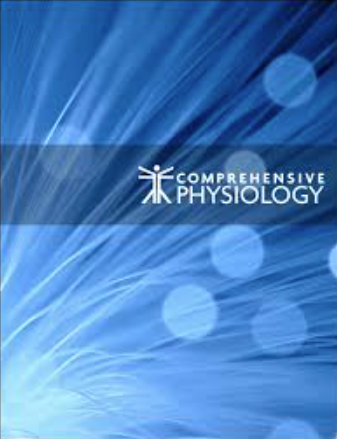Interactions between the Autonomic Nervous System and the Immune System after Stroke.
Li Zhu, Leo Huang, Anh Le, Tom J Wang, Jiewen Zhang, Xuemei Chen, Junmin Wang, Jian Wang, Chao Jiang
求助PDF
{"title":"Interactions between the Autonomic Nervous System and the Immune System after Stroke.","authors":"Li Zhu, Leo Huang, Anh Le, Tom J Wang, Jiewen Zhang, Xuemei Chen, Junmin Wang, Jian Wang, Chao Jiang","doi":"10.1002/cphy.c210047","DOIUrl":null,"url":null,"abstract":"<p><p>Acute stroke is one of the leading causes of morbidity and mortality worldwide. Stroke-induced immune-inflammatory response occurs in the perilesion areas and the periphery. Although stroke-induced immunosuppression may alleviate brain injury, it hinders brain repair as the immune-inflammatory response plays a bidirectional role after acute stroke. Furthermore, suppression of the systemic immune-inflammatory response increases the risk of life-threatening systemic bacterial infections after acute stroke. Therefore, it is essential to explore the mechanisms that underlie the stroke-induced immune-inflammatory response. Autonomic nervous system (ANS) activation is critical for regulating the local and systemic immune-inflammatory responses and may influence the prognosis of acute stroke. We review the changes in the sympathetic and parasympathetic nervous systems and their influence on the immune-inflammatory response after stroke. Importantly, this article summarizes the mechanisms on how ANS regulates the immune-inflammatory response through neurotransmitters and their receptors in immunocytes and immune organs after stroke. To facilitate translational research, we also discuss the promising therapeutic approaches modulating the activation of the ANS or the immune-inflammatory response to promote neurologic recovery after stroke. © 2022 American Physiological Society. Compr Physiol 12:3665-3704, 2022.</p>","PeriodicalId":10573,"journal":{"name":"Comprehensive Physiology","volume":"12 3","pages":"3665-3704"},"PeriodicalIF":4.2000,"publicationDate":"2022-06-29","publicationTypes":"Journal Article","fieldsOfStudy":null,"isOpenAccess":false,"openAccessPdf":"","citationCount":"7","resultStr":null,"platform":"Semanticscholar","paperid":null,"PeriodicalName":"Comprehensive Physiology","FirstCategoryId":"3","ListUrlMain":"https://doi.org/10.1002/cphy.c210047","RegionNum":2,"RegionCategory":"医学","ArticlePicture":[],"TitleCN":null,"AbstractTextCN":null,"PMCID":null,"EPubDate":"","PubModel":"","JCR":"Q1","JCRName":"PHYSIOLOGY","Score":null,"Total":0}
引用次数: 7
引用
批量引用
Abstract
Acute stroke is one of the leading causes of morbidity and mortality worldwide. Stroke-induced immune-inflammatory response occurs in the perilesion areas and the periphery. Although stroke-induced immunosuppression may alleviate brain injury, it hinders brain repair as the immune-inflammatory response plays a bidirectional role after acute stroke. Furthermore, suppression of the systemic immune-inflammatory response increases the risk of life-threatening systemic bacterial infections after acute stroke. Therefore, it is essential to explore the mechanisms that underlie the stroke-induced immune-inflammatory response. Autonomic nervous system (ANS) activation is critical for regulating the local and systemic immune-inflammatory responses and may influence the prognosis of acute stroke. We review the changes in the sympathetic and parasympathetic nervous systems and their influence on the immune-inflammatory response after stroke. Importantly, this article summarizes the mechanisms on how ANS regulates the immune-inflammatory response through neurotransmitters and their receptors in immunocytes and immune organs after stroke. To facilitate translational research, we also discuss the promising therapeutic approaches modulating the activation of the ANS or the immune-inflammatory response to promote neurologic recovery after stroke. © 2022 American Physiological Society. Compr Physiol 12:3665-3704, 2022.
中风后自主神经系统与免疫系统的相互作用。
急性中风是全世界发病率和死亡率的主要原因之一。中风引起的免疫炎症反应发生在病变周围和周围。脑卒中诱导的免疫抑制虽然可以减轻脑损伤,但由于急性脑卒中后的免疫炎症反应是双向的,它阻碍了脑修复。此外,抑制全身免疫炎症反应会增加急性中风后危及生命的全身细菌感染的风险。因此,有必要探索中风诱导的免疫炎症反应的机制。自主神经系统(ANS)的激活对于调节局部和全身免疫炎症反应至关重要,并可能影响急性卒中的预后。我们回顾了卒中后交感和副交感神经系统的变化及其对免疫炎症反应的影响。重要的是,本文综述了脑卒中后ANS如何通过免疫细胞和免疫器官中的神经递质及其受体调节免疫炎症反应的机制。为了促进转化研究,我们还讨论了有希望的治疗方法,通过调节ANS的激活或免疫炎症反应来促进中风后神经系统的恢复。©2022美国生理学会。中国生物医学工程学报(英文版),2016。
本文章由计算机程序翻译,如有差异,请以英文原文为准。


